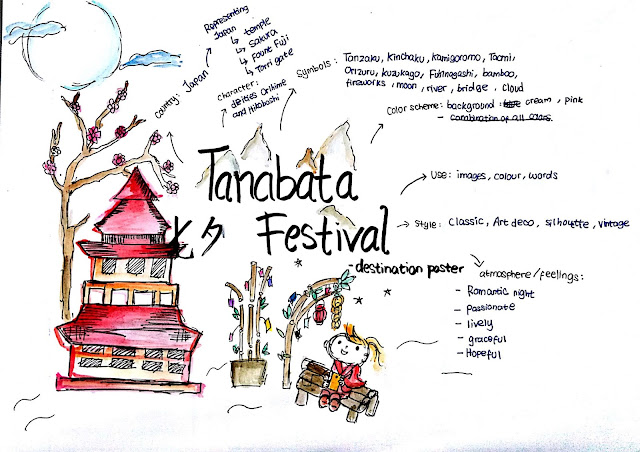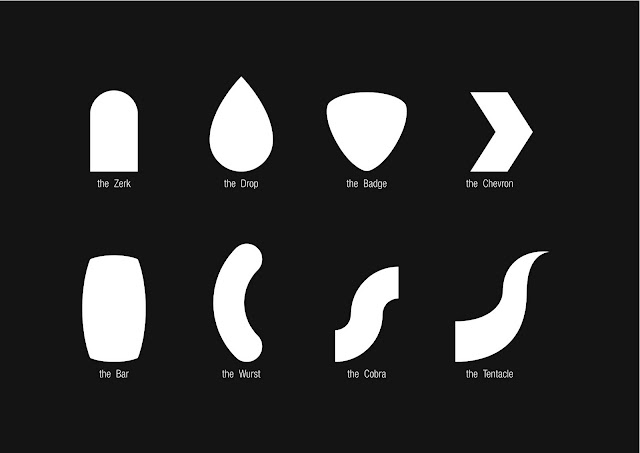Design Studies 2: Culture and Consumerism- Assignment 1
Design Studies 2: Culture and Consumerism- Assignment 1
28 March, 2018 - 19 April, 2018 (Week 1 - Week 4)
Jesslyn Fabryando (0332213)
Design Studies 2: Culture and Consumerism
Lecture 1: Introduction to the module Design studies 2
28 March, 2018 (Week 1)
On the first week of the class, our lecturer, Ms. Noranis, introduced us about what we will be doing throughout the semester and some quizzes that will be conducted. As the class reached the end, we were asked to find any festival from around the world and gather the information to be discussed on the second week.
Lecture 2: Culture & Behavior
5 April, 2018 (Week 2)
On our second week, we were given a lecture about 'Culture & Behavior' where culture affect our human behavior. We need to understand the definition of culture and human behavior.
Lecture 3: Psychology of culture and behaviour
12 April, 2018 (Week 3)
On our third week, we were given a lecture about 'Psychology of culture and behaviour'. According to Stuart Hall, It is the participants in a culture who give meaning to people, objects, and events. It is by our use of things and what we say, think, and feel about them - how we represent them - that we give them meaning.
There are 2 types of studies about human psychology.
INSTRUCTION:
Assignment 1: Destination poster
WORK PROCESSES:
On our second week, we consulted on our selected festival and showed our assignment progression through powerpoint. I chose Japan's Tanabata Festival because I find it interesting since people go crazy about it making a wish. Ms, Anis ever heard of this festival but I tried to give further and interesting information that she doesn't know. After presenting my powerpoint, she asked us to start working on the report of the festival I chose.
Slides about Japan's Tanabata Festival
Report about Japan's Tanabata Festival
On out third week of class, Ms. Anis roam around to see our progression by showing our mind maps and our sketches. I came up with 6 sketches and she said I can proceed to digitalizing my artwork.
Art Report of the poster making
FINAL OUTCOME:
On the first week of the class, our lecturer, Ms. Noranis, introduced us about what we will be doing throughout the semester and some quizzes that will be conducted. As the class reached the end, we were asked to find any festival from around the world and gather the information to be discussed on the second week.
Lecture 2: Culture & Behavior
5 April, 2018 (Week 2)
On our second week, we were given a lecture about 'Culture & Behavior' where culture affect our human behavior. We need to understand the definition of culture and human behavior.
- Culture: Characteristics and knowledge of a particular group of people, encompassing language, religion, cuisine, social habits, music and arts.
- Human Behavior: The capacity of mental, physical, emotional, and social activities experienced during the five stages of a human being’s life - prenatal, infancy, childhood, adolescence, and adulthood.
There are 4 essential components in culture: - Norm
- Values
- Beliefs
- Use of material objects
- Human behavior is categorize into 3:
- Instinct - unlearned behavior like gut feelings
- Reflex - automatic physical reaction to stimulus like the feeling of pain
- Drive - inclination like peer pressure
Lecture 3: Psychology of culture and behaviour
12 April, 2018 (Week 3)
On our third week, we were given a lecture about 'Psychology of culture and behaviour'. According to Stuart Hall, It is the participants in a culture who give meaning to people, objects, and events. It is by our use of things and what we say, think, and feel about them - how we represent them - that we give them meaning.
There are 2 types of studies about human psychology.
- Wilhelm Wundt: Studies the lower mental process (unconscious mind) by analyzing the human mind in a more structured way through repeatable observation and experimentation.
- Wilhelm Dilthey: Studies the higher mental process (conscious mind) through systematic relation between life, humanities, and expressions as well as through cultural sciences.
Aside from that we also learn about culture psychology. The study of cultural meanings, practices and institutions influence and reflect individual human psychologies.
- Culture psychology: The study of the way cultural traditions and social practices regulate, express and transform the human psyche.
As people engage with a culture's practices, artifacts, and institutions, their thoughts feelings, and behaviors come to reflect the culture's values and beliefs. Culture shapes individual minds and behaviors.
After the lecture, Ms. Anis gave us group exercise where we need to search for an artifact or practice that has cultural significance but not viewed similarly from other society. As for my group, we found a practice in Greece where people actually spit on other people as much as three times as a way to get rid of bad luck. Another things is that, people will also spit on you if they want to compliment you. This applies even to brides.
Lecture 4: Culture Classification: High and Low Context
19 April, 2018 (Week 4)
On our forth week, we were given a lecture about 'Culture Classification: High and Low Context'.
Lecture 4: Culture Classification: High and Low Context
19 April, 2018 (Week 4)
On our forth week, we were given a lecture about 'Culture Classification: High and Low Context'.
- Low Context Culture: Communication style that relies heavily on explicit and direct language.
- Traits: (Information is in words)
- Shorter relationships
- Less dependent on context
- Written agreements
- Insiders and outsiders are less clearly distinguished
- Cultural patterns change faster
- Business before friendship
- Credibility through expertise and performance
- Agreements by legal contract
- Efficient negotiations
- An example of country that's has a low context culture is mostly western countries especially America.
- High Context Culture: Communication style that are implicit and rely heavily on context.
- Traits: (Information is in the visuals, the symbols, and the associations attached to them.)
- Long lasting relationships
- Exploiting context
- Spoken agreements
- Insiders and outsiders are clearly distinguished
- Cultural patterns are ingrained and changes slowly
- No business without friendship
- Credibility through relationships
- Agreements founded on trust
- Ritualistic negotiations
- An example of country that has high context culture is mostly eastern or Asian countries such as Japan.
INSTRUCTION:
Assignment 1: Destination poster
WORK PROCESSES:
On our second week, we consulted on our selected festival and showed our assignment progression through powerpoint. I chose Japan's Tanabata Festival because I find it interesting since people go crazy about it making a wish. Ms, Anis ever heard of this festival but I tried to give further and interesting information that she doesn't know. After presenting my powerpoint, she asked us to start working on the report of the festival I chose.
Slides about Japan's Tanabata Festival
Report about Japan's Tanabata Festival
On out third week of class, Ms. Anis roam around to see our progression by showing our mind maps and our sketches. I came up with 6 sketches and she said I can proceed to digitalizing my artwork.
 |
| Fig. 1. Mindmaps |
 |
| Fig. 1.1 Sketches |
Art Report of the poster making
FINAL OUTCOME:
 |
| Festival Destination poster |



Comments
Post a Comment